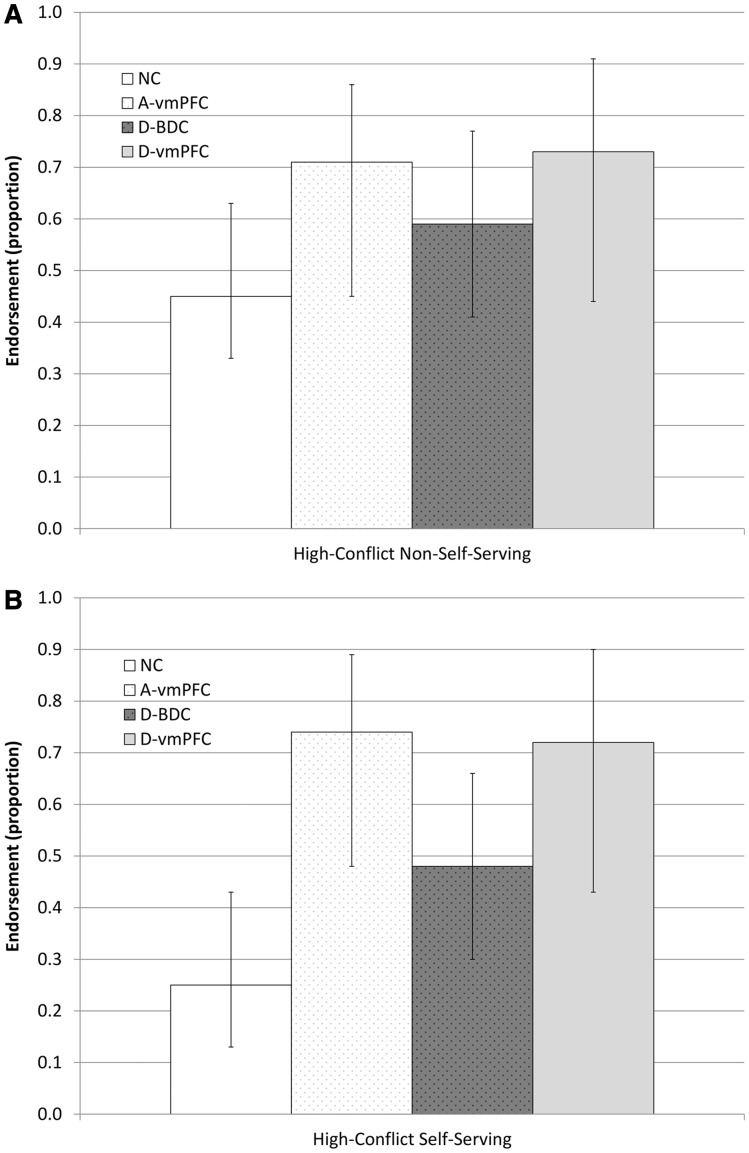Figure 3.
Moral judgements for high-conflict (A) non-self-serving and (B) self-serving scenarios. The proportion of endorsement of the utilitarian action (causing a social-emotional harm to maximize lives saved) or utilitarian self-serving action (causing a social-emotional harm to maximize lives saved and save one’s own or one’s child’s life) is shown for each participant group, with error bars indicating 95% confidence intervals. (A) High-conflict non-self-serving scenarios: none of the groups were significantly different in endorsement of the utilitarian action, although the developmental-onset (D-vmPFC) and adult-onset ventromedial PFC (A-vmPFC) groups exhibited marginally greater endorsement than the neurologically healthy (NC) group (P = 0.074 and P = 0.111, respectively). (B) High-conflict self-serving scenarios: the developmental-onset ventromedial PFC (D-vmPFC) group was more likely to endorse self-serving utilitarian actions than the neurologically healthy (odds ratio = 7.716, P = 0.007) and developmental brain-damaged comparison (D-BDC) groups, although the latter did not reach significance (OR = 2.769, P = 0.17). The adult-onset ventromedial PFC group was more likely to endorse self-serving utilitarian actions than the neurologically healthy (OR = 8.391, P = 0.003) and developmental brain-damaged comparison groups, although again the latter did not reach significance (OR = 3.023, P = 0.105). The developmental-onset ventromedial PFC and adult-onset ventromedial PFC groups did not differ (OR = 0.926, P = 0.927), nor did the neurologically healthy and developmental brain-damaged comparison groups (OR = 0.562, P = 0.252).

